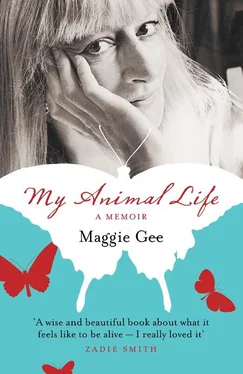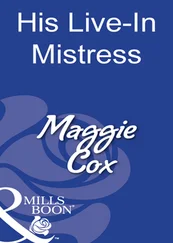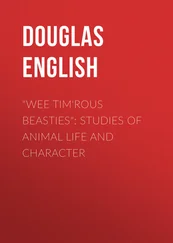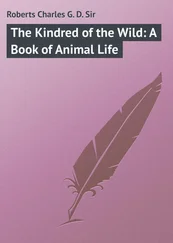On the three-hour journey home, things crystallised. I was a writer, but what was I writing? It was time to write myself out of trouble. The only thing I could do was write, and no one, no one could stop me writing ( Vic’s daughter would never give up ). The two books in my bag, and the students, came together. I took my own advice, and tried it out. I roughed out a story, with three acts, and plot points. We were in the middle of the next century, and an ice age had come upon us very fast. And I remember the excitement of sitting down at home and working into the night on the outline of a story as I followed, scene by scene, my model film structure. I had needed an idea, something utterly different from the rambling themes of the earlier novel; I needed a rope to guide me to the end, for I would not have dared follow my nose again, after my big, loose structure had led me to disaster. Within two days, I was given both things. I took what I was given and ran with it.
I wrote The Ice People in less than six months. I wrote it as comedy, as satire, though there were links with The Keeper of the Gate : I had a biracial hero, Saul, who was trying to take his son Luke back to Africa, away from the ice that was advancing from the north. The arrow of population flow was reversed. It was Africa’s turn to restrict immigration. This new book was clear and short, with plenty of adventure. It felt totally different from its predecessor. My spirits improved. I was doing what I did. Now life would surely revert to normal. Nick loved the book. I sent it to the agent. He was less expressive, but said it was ‘good’. He sent it to our joint first choice of publishers — and of course there were fewer to send to than before, not just because the publishing world was contracting as more independents were sucked into conglomerates, but because I had been published by several already.
My hopes were high, but it began again, the catalogue of disappointing letters, and this time it was even harder to bear. I couldn’t believe it, but it re-ran, the disaster movie of rejection. (Yet I knew they were wrong. This time they were wrong. I was absolutely sure this book was good. The other one had been so strange and unwieldy that I could hardly bear to think about it, but this one was carefully edited. I was over the worst of my RSI and the chaotic haste of Rosa’s early childhood. I do have a cool side; I am hard on myself, but my considered opinion was, this book hacked it.)
Where to go next? I could not give up. I had put the first book aside to drain, but I could not do that with a second. I went for another discussion with the agent. I could see the tall man was wearying of me, but I didn’t want to acknowledge it, because if he gave up on me, I had lost the lot: publisher, book, this man who gave me status. But status, between writer and agent, is a two-way thing. I had not considered how it affected him, this wry, reserved man who liked to win, representing a writer who was being turned down. I should have paid attention to something he said after a rejection letter that was particularly offensive: ‘Yes … probably aimed at me, not you.’ I did hear something he said that was so terrible I had to hive it off into a part of my brain where I could bear to hear it later. He had a drawling, smiling manner which had become vaguer and less intimate. He still had few words, but these words cut. ‘I wouldn’t say that in the present state of the market it’s a book that demands to be published.’ We were nearing the end of our barren story, but I had to hang on. I had nowhere else to go.
The end came after a rejection from the last big publisher on our list. I wrote the agent a short, polite letter asking him to send the manuscript to two small independent publishers, Serpent’s Tail and Richard Cohen Books. But the tall man did not deal with small independents. They were too short, they were under his radar. He didn’t say this, but I would hypothesise two reasons. One, they pay less. He was a businessman. Of course agents deal with small independents, but in our case there was no real warmth or liking to make up for the missing money. Second, and perhaps more important: if I was going to be turned down by publishers he thought of as so lowly … he would be turned down by them too. This was simply unacceptable.
He ended the relationship between us by fax, which arrived at the end of an afternoon. It came scrolling smudgily into my house where Nick and Rosa had to live too, where either of them might have read it first. I suppose he was afraid to speak to me. I wish I could remember what he said, but it was just something coolly neutral: ‘I don’t deal with those particular publishers … better if we no longer represent you.’
I know there was no malice behind it. I know that for him it was just business, and I was no longer a business proposition. I had fooled myself into thinking it was more — some agents are doggedly loyal to their authors — but no, I had deceived myself. Beware, young writers. Agents need to make money.
That was the nadir. That was the worst. You may wonder, reader, where this chapter is going as I drag you with me down this long mudslide, but take heart, for this was the turning point. It was Nick who told me this, for when I came through clutching the cheap, cowardly paper I had ripped from the mouth of the grey machine, his antic self, his adorable self that cannot be repressed or changed, shouted, ‘HURRAY! Hurray, hurray! Thank God, at last you are rid of that —.Now everything will get better, Magsie.’ At the time I thought he was utterly mad, though I loved him for it more than I can say, but it was true, my fate was back in our hands.
I sent off the manuscripts to the two publishers I had chosen. Richard Cohen Books was an interesting one; Richard had been a famous editor at Hodder, credited (falsely) with rewriting Jeffrey Archer; but he really had edited countless high-profile literary authors and books, Fay Weldon’s scintillating Puffball among them. He had left Hodder to found his own firm. It was small, but his reputation gave it status.
A preliminary letter came back at once, from Richard himself, acknowledging receipt, but also, in a humorous way that fell on my bruised ego like irony, saying something like ‘but why would such a famous author be sending to a little outfit like ours?’ Naturally I did not send a ten-page answer.
Even that slight contact made me hope, though I had hoped too much, and had too many knock-backs. Yet a small voice inside me said, ‘This has to work, because if not, this time I can’t bear it.’
Then I remembered what you had to do when life was too much for you to bear. It was the week after I had sent the books off. Nick had gone to work, and Rosa to school. I was alone; the house was sunny. Hope swirled up into that glory of sunlight and with it, the terror of absolute despair. Before I knew what I was doing, I was down on my knees, on the comfortless jute flooring, praying, my forehead cupped in my hands, the knuckles pressed into the ridges of jute. The sunlight blazed above my head. ‘Please God please God, may I get a phone call. I just can’t bear this any more.’ Red basket-weave marks on my hands, my knees.
And the phone rang. It was Richard Cohen. I could hear the smile in his voice. He had read my book, liked it, admired it. Yes, they were very keen to publish. They weren’t rich though. Would £5,000 be enough?
Like all the best film scripts, it wasn’t quite over at the moment when the hero arrived to save me. But Richard did have a heroic mien: he was tall and craggy, an Olympic fencer still, in his fifties, with a baritone voice and a head of curls. He introduced me to Christine Casley, the wonderful editor who would go on to edit my next three books (my next three books . That casual phrase that for two years I’d been unable to take for granted.) I liked everyone in that small firm with their offices off Soho Square. It felt like old-fashioned publishing. They got on with each other, they believed in all the books. It was a happiness to go in and see them, to use, again, with infinitely more pleasure, the innocent phrase ‘my publisher’, to descend from the square to that bright, bookish basement.
Читать дальше












